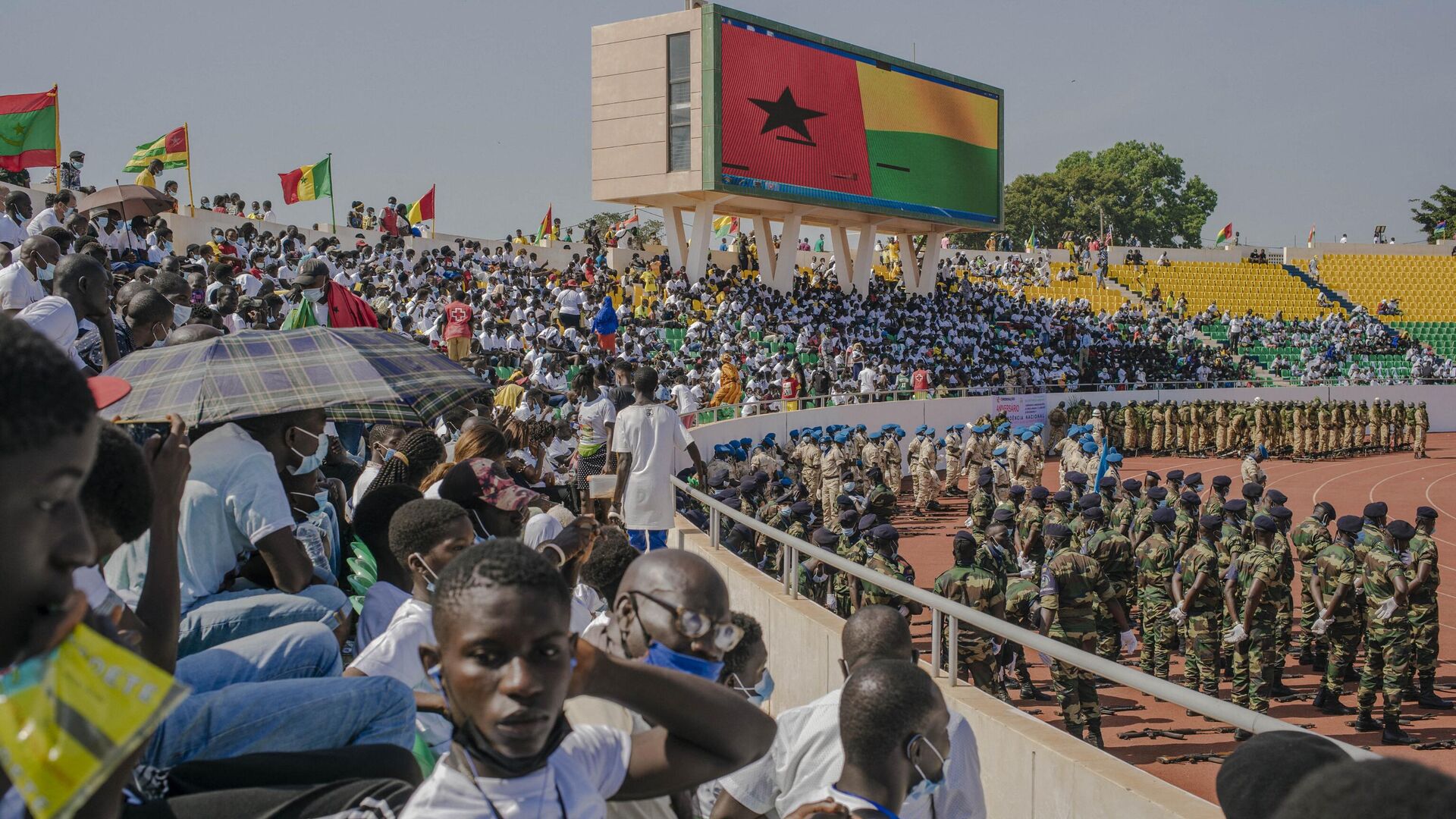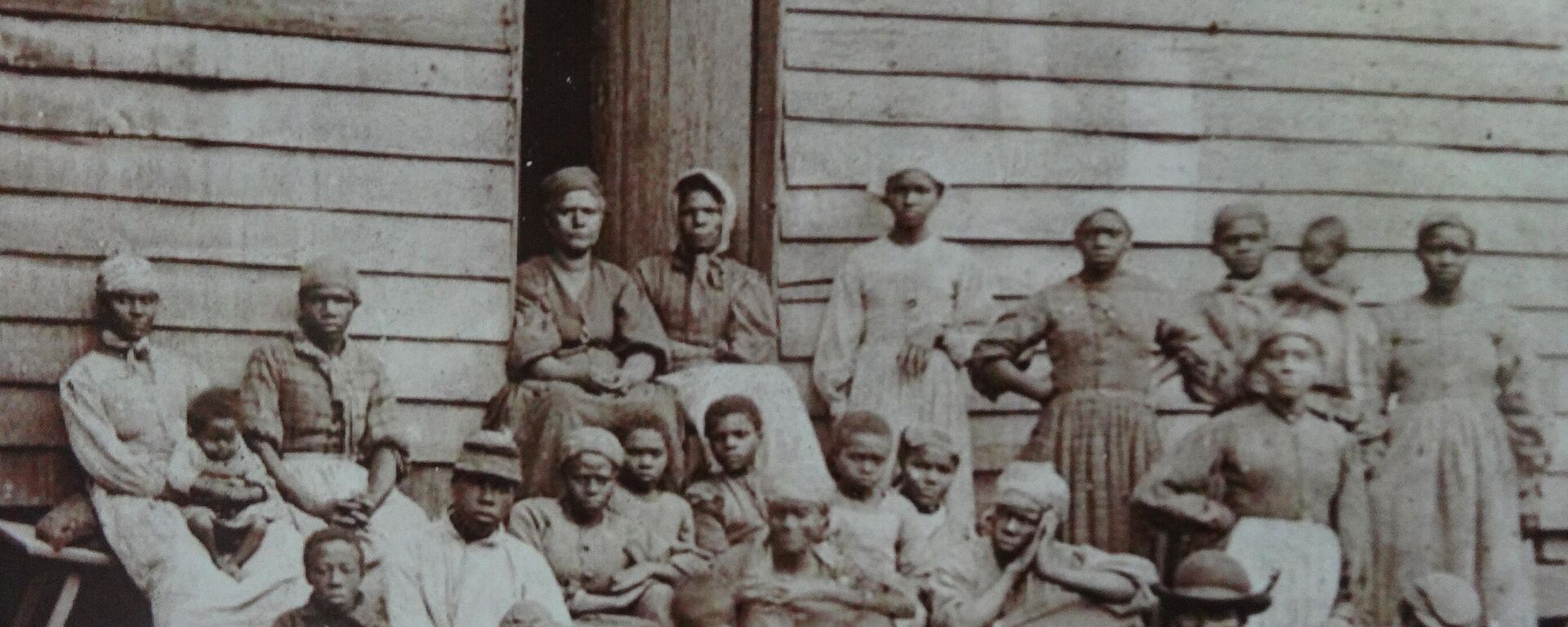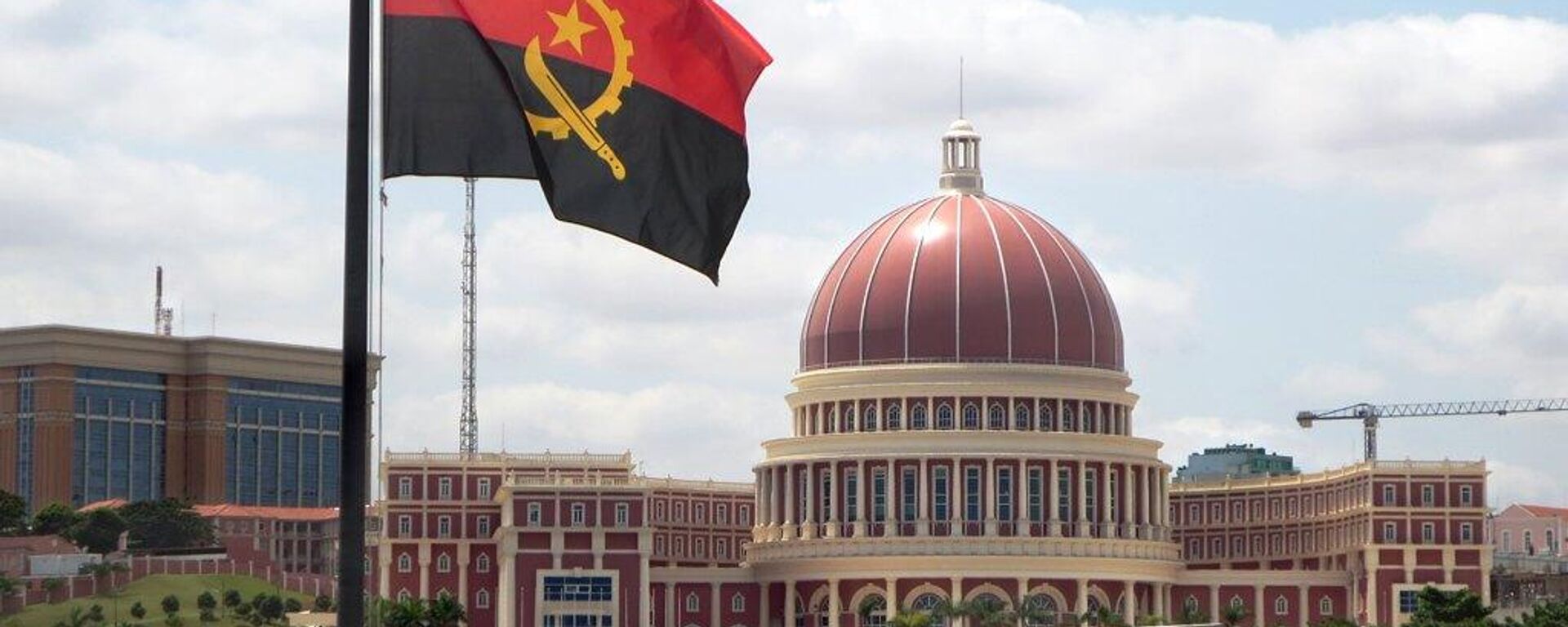https://en.sputniknews.africa/20230924/unity-struggle-and-progress-guinea-bissau-celebrates-50-years-of-independence-1062315266.html
'Unity, Struggle and Progress': Guinea-Bissau Celebrates 50 Years of Independence
'Unity, Struggle and Progress': Guinea-Bissau Celebrates 50 Years of Independence
Sputnik Africa
On September 24, Guinea-Bissau observes Independence Day, a national holiday commemorating the country's unilateral declaration of independence from Portugal... 24.09.2023, Sputnik Africa
2023-09-24T12:41+0200
2023-09-24T12:41+0200
2023-09-24T13:09+0200
features
west africa
guinea-bissau
politics
independence
national holiday
holidays
portugal
colonialism
https://cdn1.img.sputniknews.africa/img/07e7/09/18/1062317323_0:160:3072:1888_1920x0_80_0_0_b4592b1b324b20c3275c2a0b7cfc8a07.jpg
The holiday is usually marked by large celebrations and festivities across the country, solemn speeches and calls to continue defending national sovereignty. As the West African nation celebrates the 50th anniversary of its independence, Sputnik Africa takes a look at key events in Guinea-Bissau's journey towards freedom and self-determination.Guinea-Bissau's Struggle for IndependenceAt first, the Portuguese who settled in the Cabo Verde Islands in the western part of the continent carried out raids on the mainland to capture slaves for sale in Latin America. In the 16th century, they began to establish forts and trading posts, which were important for the slave trade. However, the Portuguese made little effort to colonize or explore the interior of the country until the 19th century. Several attempts to penetrate the interior were thwarted by the resistance of the indigenous population.In 1879, Guinea-Bissau, previously administered as part of the Portuguese Cabo Verde Islands, became a separate colony – Portuguese Guinea. Over the years, Portugal's right to the territory was disputed by England, France, Spain and the Netherlands. In 1886, Portugal ceded a significant part of the territory to France. The colonization of the interior areas was completed at the beginning of the 20th century.After World War II, the liberation struggle of the people of Portuguese Guinea against the colonialists intensified. In 1951, as a result of the reform of the Portuguese colonial system, this territory received the status of an overseas province. In 1956, the first liberation movement was founded in the province. The African Party for the Independence of Guinea and Cape Verde (PAIGC) was established and led by Amilcar Cabral, one of Africa's leading anti-colonial fighters. It was initially organized as a peaceful movement to achieve independence through non-violent means. But in 1963, disillusioned by the colonialists' methods of suppressing local demonstrations, the PAIGC launched a military campaign, starting the War of Independence (1963 -1974).The armed independence movement was supported by several countries of the socialist bloc, including Cuba, the Soviet Union, and Yugoslavia. It was a protracted guerrilla war that was extremely costly in men and materiel and caused considerable internal political turmoil in Portugal.The war lasted more than ten years. By 1973, the PAIGC had gained control of about two-thirds of the country, and despite Cabral's assassination in January that year, Guinea-Bissau declared itself an independent republic on September 24.This and other revolutionary events in Portuguese territories led to the Carnation Revolution in April 1974. The new Portuguese government then began talks with the overseas territories, which led to the formal recognition of Guinea-Bissau's independence on September 10, 1974.After the gaining of independence, the PAIGC was established as the only legal political party in the country, which had chosen a socialist path of development, and Luis Cabral, Amilcar Cabral's brother, became president. Since then, the country has seen numerous military coups and more than 20 attempts by the military to seize power by force. How Bissau Guineans Observe National DayThe holiday is celebrated with a variety of festivities. In the capital city of Bissau. Large events are held, including military parades, marching bands and dancers. However, these aren't the only Independence Day celebrations in the country, and almost every community has its own cultural events and parties.Independence Day is also marked with official speeches, solemn ceremonies, and other activities.On this occasion, President Umaro Sissoco Embalo encouraged Bissau Guineans to celebrate the 50th anniversary of the country's independence by taking a moment to reflect on the nation's journey, especially on "what we have already done, the future we want to build and the legacy that we want to leave for future generations."The president recalled that Guinea-Bissau was born under the banner of "Unity, Struggle and Progress," stressing that under this particular slogan "the future we want will be built." On this day of "great historical significance," Embalo also urged people throughout the country to pay tribute to all those who sacrificed their lives in resistance to colonial oppression, in the clandestine anti-colonial struggle and in the arduous armed fight for national liberation that lasted more than ten years.
https://en.sputniknews.africa/20230922/colonizers-must-stop-robbing-africa-and-should-return-the-stolen-experts-argue--1062278576.html
https://en.sputniknews.africa/20230917/angolas-national-heroes-day-first-president-a-cultural-symbol-for-all-generations-1062169273.html
west africa
guinea-bissau
portugal
Sputnik Africa
feedback@sputniknews.com
+74956456601
MIA „Rossiya Segodnya“
2023
News
en_EN
Sputnik Africa
feedback@sputniknews.com
+74956456601
MIA „Rossiya Segodnya“
Sputnik Africa
feedback@sputniknews.com
+74956456601
MIA „Rossiya Segodnya“
west africa, guinea-bissau, politics, independence, national holiday, holidays, portugal, colonialism
west africa, guinea-bissau, politics, independence, national holiday, holidays, portugal, colonialism
'Unity, Struggle and Progress': Guinea-Bissau Celebrates 50 Years of Independence
12:41 24.09.2023 (Updated: 13:09 24.09.2023) On September 24, Guinea-Bissau observes Independence Day, a national holiday commemorating the country's unilateral declaration of independence from Portugal in 1973. It was part of the liberation struggle in several Portuguese colonies that resulted in those areas gaining independence.
The holiday is usually marked by large celebrations and festivities across the country, solemn speeches and calls to continue defending national sovereignty. As the West African nation celebrates the 50th anniversary of its independence, Sputnik Africa takes a look at key events in Guinea-Bissau's journey towards freedom and self-determination.
Guinea-Bissau's Struggle for Independence
At first, the Portuguese who settled in the Cabo Verde Islands in the western part of the continent carried out raids on the mainland to capture slaves for sale in Latin America. In the 16th century, they began to establish forts and trading posts, which were important for the slave trade.
However, the Portuguese made little effort to colonize or explore the interior of the country until the 19th century. Several attempts to penetrate the interior were thwarted by the resistance of the indigenous population.
In 1879, Guinea-Bissau, previously administered as part of the Portuguese Cabo Verde Islands, became a separate colony – Portuguese Guinea. Over the years, Portugal's right to the territory was disputed by England, France, Spain and the Netherlands. In 1886, Portugal ceded a significant part of the territory to France. The
colonization of the interior areas was completed at the beginning of the 20th century.
After World War II, the liberation struggle of the people of Portuguese Guinea against the colonialists intensified. In 1951, as a result of the reform of the Portuguese colonial system, this territory received the status of an overseas province.
In 1956, the first liberation movement was founded in the province. The African Party for the Independence of Guinea and Cape Verde (PAIGC) was established and led by Amilcar Cabral, one of Africa's leading anti-colonial fighters. It was initially organized as a peaceful movement to achieve independence through non-violent means. But in 1963, disillusioned by the colonialists' methods of
suppressing local demonstrations, the PAIGC launched a military campaign, starting the War of Independence (1963 -1974).
The armed independence movement was supported by several countries of the socialist bloc, including Cuba, the Soviet Union, and Yugoslavia. It was a protracted guerrilla war that was extremely costly in men and materiel and caused considerable internal political turmoil in Portugal.
The war lasted more than ten years. By 1973, the PAIGC had gained control of about two-thirds of the country, and despite Cabral's assassination in January that year, Guinea-Bissau declared itself an independent republic on September 24.
This and other revolutionary events in Portuguese territories led to the Carnation Revolution in April 1974. The new Portuguese government then began talks with the overseas territories, which led to the formal recognition of Guinea-Bissau's independence on September 10, 1974.
After the gaining of independence, the PAIGC was established as the only legal
political party in the country, which had chosen a socialist path of development, and Luis Cabral, Amilcar Cabral's brother, became president. Since then, the country has seen numerous military coups and more than 20 attempts by the military to seize power by force.
How Bissau Guineans Observe National Day
The holiday is celebrated with a variety of festivities. In the capital city of Bissau. Large events are held, including military parades, marching bands and dancers. However, these aren't the only Independence Day celebrations in the country, and almost every community has its own cultural events and parties.
Independence Day is also marked with official speeches, solemn ceremonies, and other activities.
On this occasion, President Umaro Sissoco Embalo encouraged Bissau Guineans to celebrate the 50th anniversary of the country's independence by taking a moment to reflect on the nation's journey, especially on "what we have already done, the future we want to build and the legacy that we want to leave for future generations."
"Despite the difficult social and economic situation we are going through, an anniversary of our independence is always a day of joy and hope. And even more, it is a day to celebrate our national unity, the strength that has always been the foundation of all our successes," he said in his Independence Day address to the nation.
The president recalled that Guinea-Bissau was born under the banner of "Unity, Struggle and Progress," stressing that under this particular slogan "the future we want will be built."
On this day of "great historical significance," Embalo also urged people throughout the country to pay tribute to all those who sacrificed their lives in resistance to colonial oppression, in the clandestine anti-colonial struggle and in the arduous
armed fight for national liberation that lasted more than ten years.



